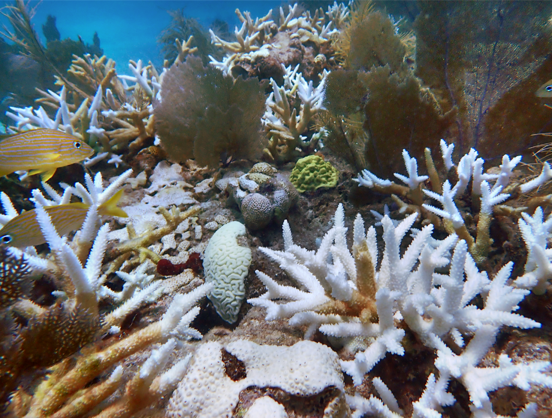In an article worth reading on AEON, Iris Braverman comes to a simple but not so easy to implement conclusion: regulatory authorities, scientists, and local communities must work together to make coral reefs fit for rising sea temperatures.
(mehr …)think.fish blog
-
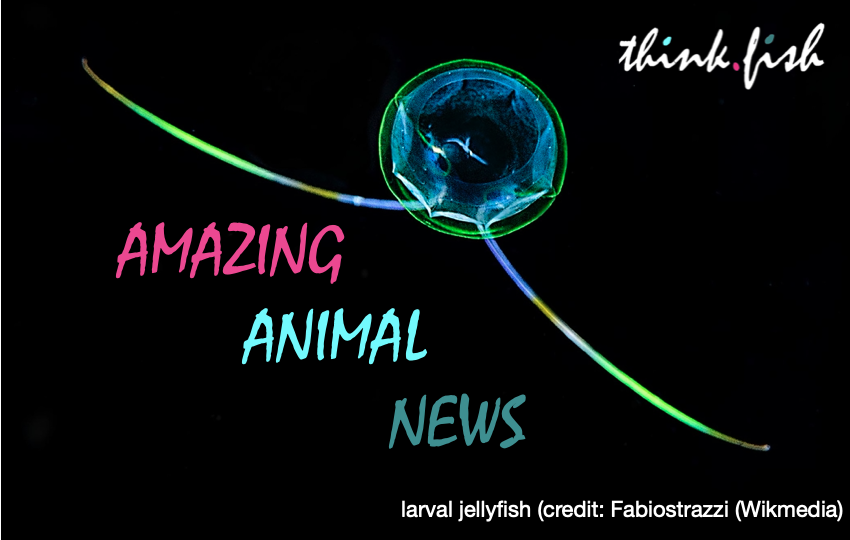
Amazing animal news 01/2026
#1: Mass extinction survival heros
While an asteroid wiped out most living beings on the planet 66 million years ago, including the dinosaurs, some species managed to survive, among which some ammonites. At least for quite a while.
(mehr …) -
Das Massenluxusproblem
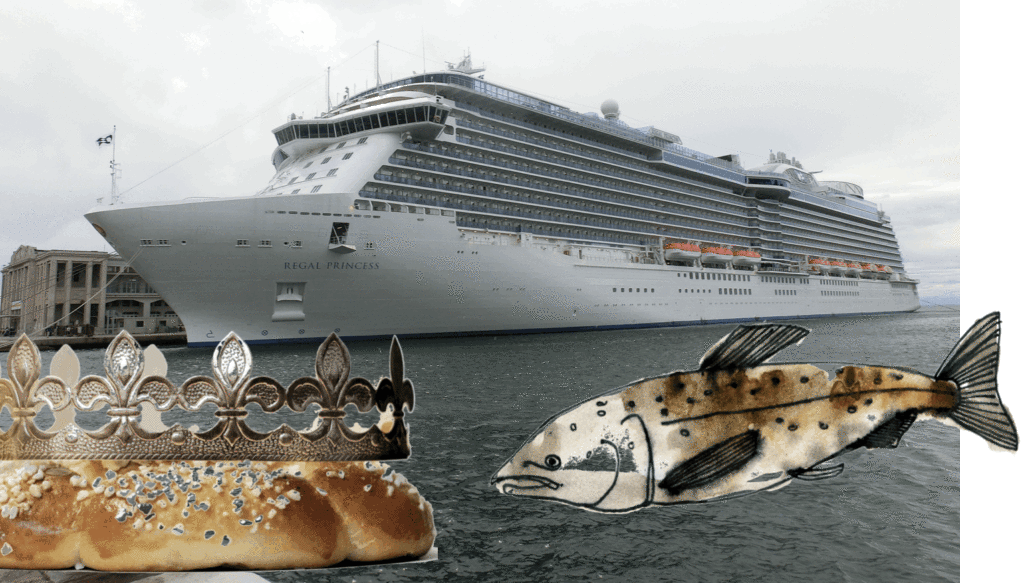
Collage: Billo (unter Verwendung einer eigenen und einer unbekannten Foto und einer Zeichnung von Kasia Jackowska) Was haben Dreikönigskuchen, Lachs und Kreuzfahrten gemeinsam? Den Wunsch, auch einmal zu denen da oben zu gehören. Mit üblen Folgen.
(mehr …) -

What seafood for the banquet?
Discover the enormous contradictions within the aquaculture industry in a single newsletter issue from an industry platform, from salmon farming in southern Africa to algae products in Scotland. Then choose your festive meal wisely.
(mehr …) -
Import lebender Hummer verbieten!

Links: Hummerfallen vor dem Ausbringen (W.carter/Wikimedia)
Rechts: Hummer lebend transportiert und gelagert (Wild Ocean Photography)
(mehr …)
Der Lebendimport von Hummern ist mit viel Tierleid verbunden. Wiederholt hatten fair-fish und weitere Schweizer Akteure ein Verbot dieser Praxis gefordert, bisher erfolglos. Wer Hummer verspeist, isst in aller Regel lange und grosse Qualen mit. -
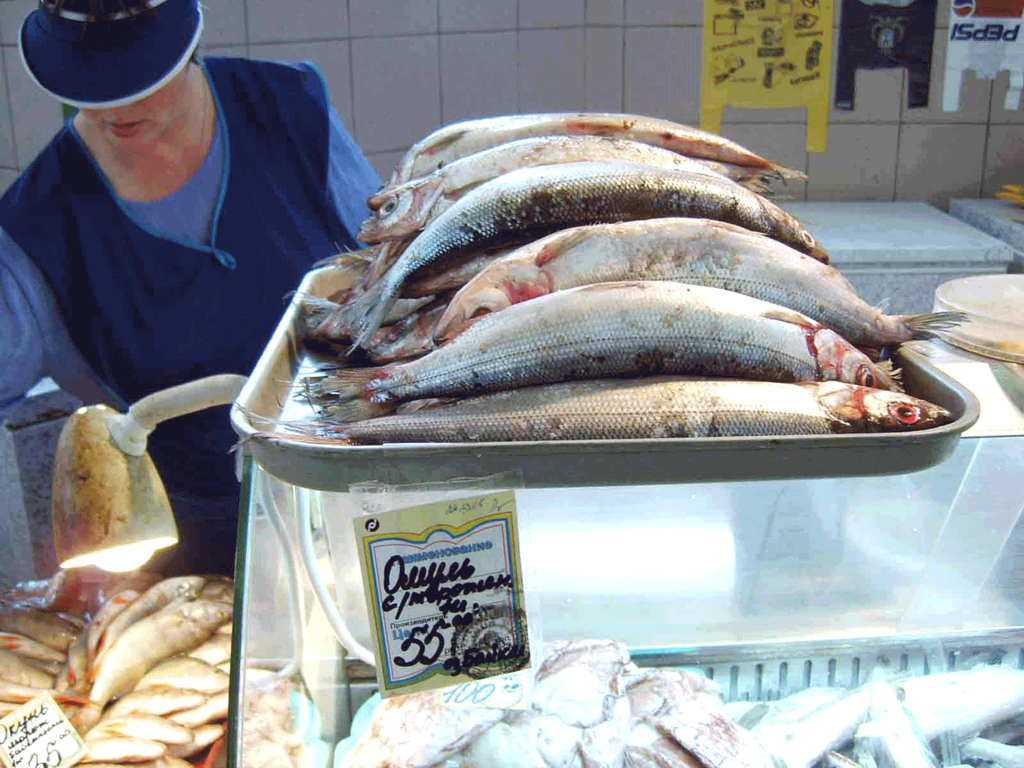
Fisch wird immer teurer? Gut so.
Das weltweit führende Branchenblatt IntraFish (Seafood News) vermeldete im Dezember 2010 den Beginn der «neuen Ära höherer Preise für Fisch und Meeresfrüchte». Heute ist das nicht anders. Gut so; denn steigende Preise schützen begehrte Güter vor Übernutzung. Eigentlich.
(mehr …) -
There is no such thing as happy fish!

(Credits: Fromageries Bel for the cow and brgfx/freepik for the pig) We are so familiar with the laughing cow on the products of a French dairy company that we do not even think about its meaning — we assume that cows at farms are not so happy. The same goes for a smiling pig in a butcher’s advert, even if the meat is organic: we won’t be naïve enough to think that the pigs whose chops we might buy were happy. So, why should we believe such a thing in the case of aquatic animals?
(mehr …) -
Humane slaughter? Animal welfare in fisheries?
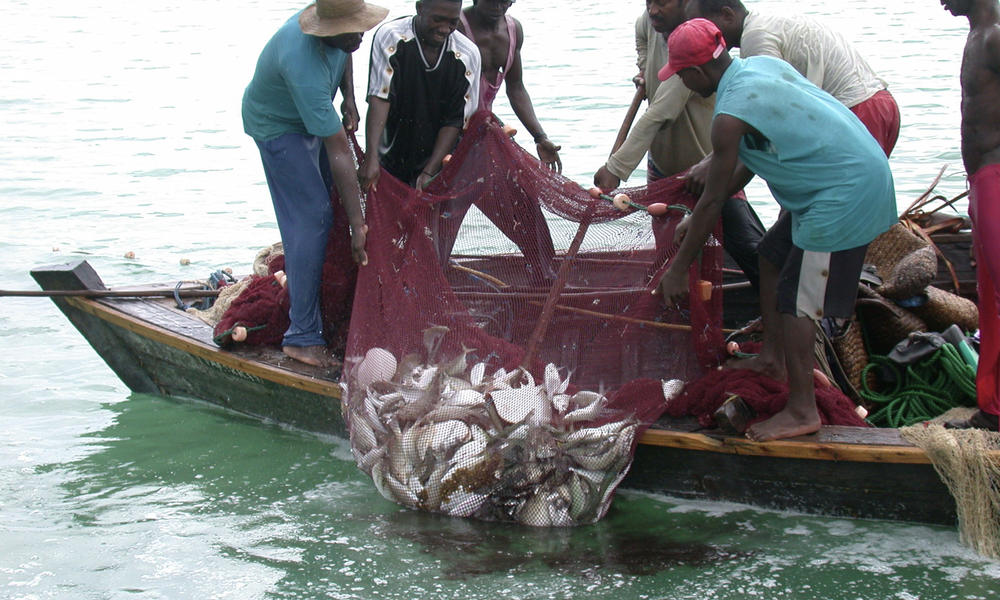
African fishermen (credit: M-Rwimo / Wikimedia Commons)
(mehr …)
Producers, sellers, and consumers of slaughtered animals try to resolve the cognitive dissonance between the desire to be a good person and the fact of taking part in something cruel. This gives rise to terms such as ‘humane slaughter’ or ‘animal welfare in fishing’ — both of which are simply impossible if we think about it carefully. But there is still much we can do. -
Die EU fragt dich, wie viel Tierschutz du haben willst
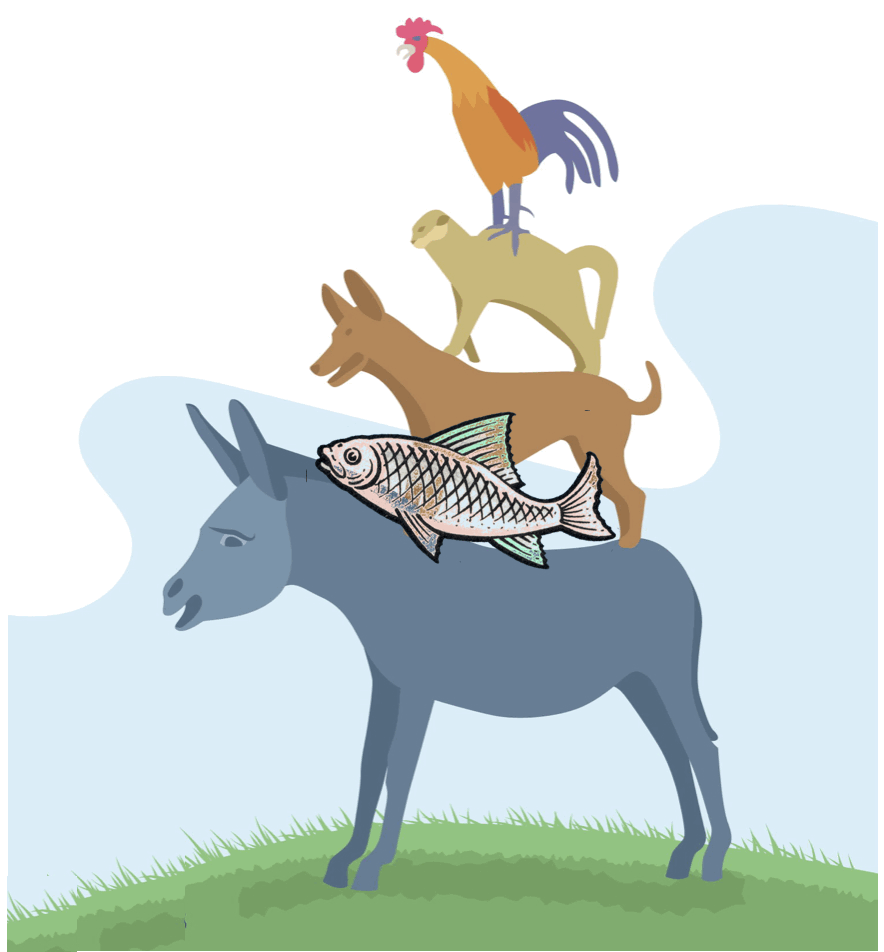
Bildcollage unter Verwendung von Bremer Stadtmusikanten (Designed by Vexels) und dem Wappen von Zorn (Heidenrod)
Die EU-Kommission führt – noch bis zum 12. Dezember – eine öffentliche Umfrage [Link] durch, um zu erfahren, welche Verbesserungen zum Schutz von landwirtschaftlichen Nutztieren gewünscht werden. Auch du kannst dich äussern!Die Fragen sind teils allgemein gehalten, teils sehr auf die Landwirtschaft und teils auf konkrete Vorhaben der EU-Kommission zugeschnitten. Es fehlen die Fische und andere in Zucht gehaltene Wassertiere, man muss sie in einem Kommentar erwähnen.
(mehr …) -
Fischwohl höchstens im Ausnahmefall

(mehr …)
In meinem Vortrag vom 28. November 2025 anlässlich der Internationalen Arbeitstagung «Angewandte Ethologie bei Nutztieren» in Freiburg zeigte ich, dass Fischwohl in der Aquakultur bestenfalls von drei Fischarten erlebt werden kann, während eine erhebliche Reduktion des Tierleids in der Fischerei wohl nur mit einigen handwerklichen Fangmethoden zu erreichen ist.
In order to be less dependent on social media, whose owners pursue their own private goals, think.fish posts will first appear on our own blog.
Summaries with a link to our blog will be posted on Facebook, LinkedIn, Substack, Bluesky, Telegram, Mastodon, and Instagram.
Suche:
Übersetzen · Translate
Alle Themen · All topics:
Stichwortliste · Keyword list
Abfall advertisement animal suffering Animal welfare artisanal fisheries Betriebsschliessung Betäubung Blauhai bottom trawl bycatch Canada Carefish/catch Catch Welfare Plattform certification Chile China Danio rerio Don Staniford E. O. Wilson Elysia Erderwärmung Ethologie EU EU-Kommission evolution fair-fish fair-fish database Fischfutter Fischmehl Fischwohl Fischzucht Fischzucht Balterswil FishEthoGroup fish meal fish oil Fish stocks Fish welfare Greenpeace greenwashing Grossbritannien Half Earth Project human-animal interaction Humane Schlachtung humane slaughter Humpback whale ICSF Intelligenz investment Kantonstierarzt Kognition labels Lachs Landwirtschaft Litopenaeus vannamei marine life Marine Protected Area Marine Protected Areas (MPA) Massentötung microalgae MPA Newfoundland Norway Norwegen Notfallplan Oktopoden Omega-3 Pacific whiteleg shrimp phytoplankton piano play Pole and line Quecksilber Ray Hilborn Reducing animal suffering respect Salmon Sandtigerhai Schweiz Scotland Senegal shrimps small-scale fisheries small scale fisheries spatial needs Stellvertretung stocking density Swiss Shrimp Thunfisch Thurgau Tierleid Tierschutz Tintenfische training trawler Umfrage Vortrag Westafrika whales Whale shark Überfischung
Artikelarchiv · Articles by date
- Januar 2026
- Dezember 2025
- November 2025
- Oktober 2025
- September 2025
- August 2025
- Juli 2025
- Juni 2025
- März 2025
- Februar 2025
- Januar 2025
- Dezember 2024
- Juli 2024
- April 2024
- März 2024
- Dezember 2023
- November 2023
- Oktober 2023
- September 2023
- August 2023
- Juli 2023
- Januar 2023
- Oktober 2022
- September 2021
- Dezember 2019
- Dezember 2018
- August 2017
- November 2016
- Dezember 2013
- Dezember 2011

